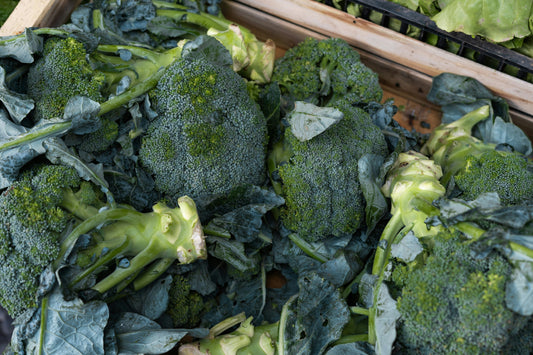Immune function is a hot topic at the moment for obvious reasons, but it really pains me when I see a load of miss information, sales pitches, and scaremongering online. When it comes to immune health, the key to unlocking a healthy immune system is consuming a varied and diverse range of colourful and nutrient-rich foods. The immune system relies on the foods we eat for optimal functioning. Other lifestyle factors like physical and emotional stress, accompanied with limited sleep can decrease your immune response and make you feel burnt out.
Fiction: I can boost my immune system with single foods, diets or supplements
There is no single food, diet, supplement, natural remedy or product on the supermarket shelf that will effectively ‘boost’ your immune system. The immune system is a complex combination of many different immune cells. Scientists are yet to figure out which cells respond to which stimuli. Healthy immune cells require consistent nourishment. If you predict you are not eating enough nutrients for example you don’t like vegetables, or you can’t eat vegetables due to stomach discomfort, then taking a multivitamin supplement can help bring about some health benefits. The same cannot be said for taking large doses of single nutrients. Certain nutrients can alter the way in which the immune system functions, the inclusion of these nutrients is therefore very important to optimise immune health:
- Vitamin C: found in dark green leafy vegetables, and red and orange fruits and vegetables as well as kiwifruit.
- Vitamin E: found in nuts, seeds, oils (canola, sunflower) and avocado
- Vitamin A: comes in two forms:
- Retinol - found in milk, cheese & butter.
- Carotenoids - found in carrots, capsicum, kumara, pumpkin, oranges, squash, corn, lemon and in darky green leafy vegetables (spinach and broccoli)
- Selenium: found in nuts, egg, fish, steak, seeds and lentils
- Zinc: found in oysters, chicken, grains, chickpeas, peanuts, cheese, and milk
Bottom line: If you are deficient in certain nutrients bringing these specific nutrients back up into a healthy range will support proper immune function, but overdosing on one particular nutrient isn’t going to give you a stronger immune system.
Fiction: Taking vitamin C supplements will prevent a common cold
Taking regular vitamin C supplements may reduce the severity and/or duration of a common cold but it is yet to be proven effective in the prevention of getting a cold. Starting to take vitamin C once you already have a cold has not been proven successful in reducing the length or severity of a cold.
Bottom line: daily vitamin C supplementation is cheap and MAY be beneficial over winter, but if you eat plenty of fruits and vegetables you are very unlikely to be deficient.
Fact: Zinc supplements can reduce the duration of a common cold
Taking a zinc supplement with at least 75 mg per day of zinc acetate once you have come down with a cold has been shown to reduce the length of the cold and its associated symptoms.
Bottom line: If you fall ill with a viral infection zinc may aid in recovery if taking enough.
Fact: Stress will weaken your immune system
When you’re stressed, the body's immune response is weakened and people become more susceptible to infections. Managing the stress, particularly chronic stress, can assist in fighting the germs.
Bottom line: Stress impacts all aspects of our health. Mindfulness, relaxation, and adequate sleep should be the priority when making changes to your health.
Fiction: You will catch a cold from being cold
Remember all those times as a child when your mother or grandmother used to yell out as you were running out the door “rug up warm or you’ll catch a cold”? As it turns out, the main reason we catch colds in the winter is from spending more time indoors within close proximity to each other.
Bottom line: Rug up warm (to keep mum happy!) and get outside in the fresh air. Keep good airflow coming through your home and keep your distance from people with active infections.
Fact: North American Ginseng can shorten the length of your cold
North American ginseng extracts (200 mg twice daily for four months) have been proven effective in shortening the length of a common cold in adults. Ginseng is a type of herb that has been used in medicine for as long as 400 years.
Bottom line: Herbal medicine can offer you powerful protect and support against winter some bugs (no strong evidence against covid viruses yet), bring this up in your next consult with me to discuss your options.
Fiction: Garlic supplements can help my cold
While garlic and ginger are known for their natural antimicrobial properties, unfortunately the jury is still out on the effectiveness of supplements. Results are very mixed and there is no clear evidence to suggest garlic supplementation will effectively treat or prevent the common cold or flu.
Botton line: Garlic and ginger are safe to use in cooking for most people (check interactions if you take medications, blood thinners especially), It might help, but won’t hurt.
Fact: Probiotics can help keep your immune system healthy
Probiotics and helpful little bacteria that have been shown to help keep your immune system healthy. They can decrease the number of colds that you catch and shorten the length of time that you may have a cold. Probiotics can be very expensive and the evidence to suggest their effectiveness is still rather limited. They should be used to complement healthy dietary habits.
Bottom line: A winter probiotic is something you can take, but look for quality and get advice. Otherwise, try to include a variety of fermented foods to support gut bug variation.
If you’re wanting to take supplements to support your immune system then the most supported, cost-effective strategy is to take regular vitamin C tablets and adding in a Zinc supplement if you feel you have come down with a cold. Remember that prevention is better than treatment so keep your immune system strong by following a well-balanced, and nutritious diet and fixing any deficiencies or gaps in your diet is the most protective approach you can take. Regular iron, B12, zinc and vitamin D testing is encouraged to help you monitor and maintain healthy levels of these nutrients.




